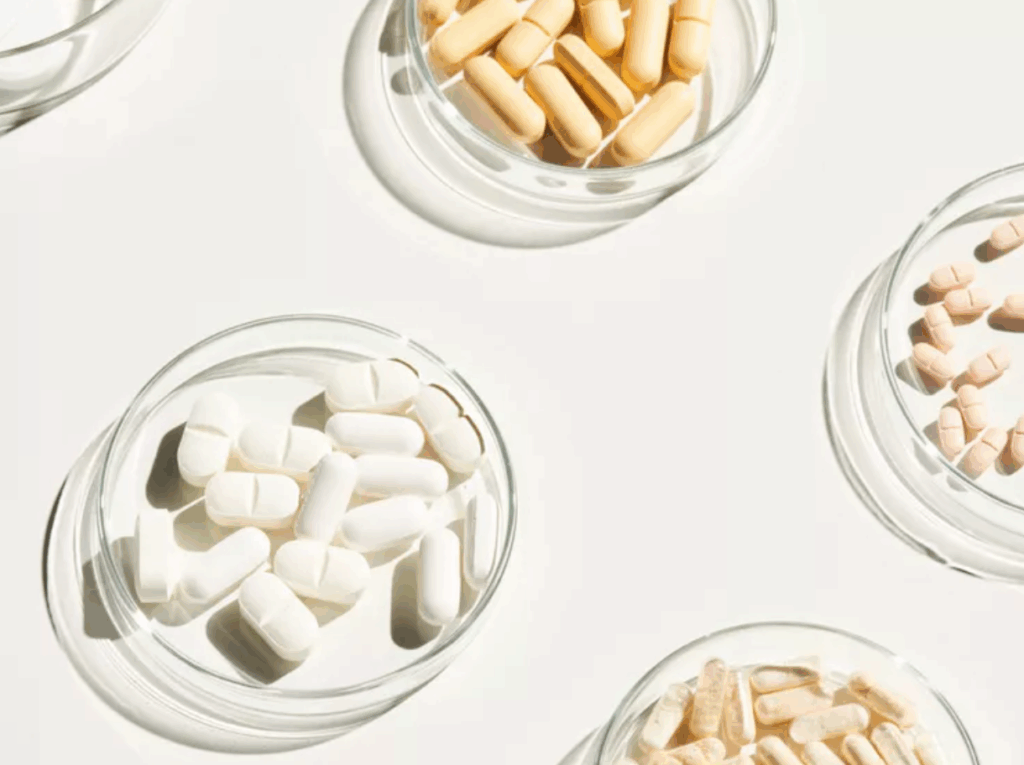Zinc might not sound as glamorous as retinol or vitamin C, but don’t underestimate it—it’s one of the most versatile, skin-loving minerals out there. Known for its anti-inflammatory and wound-healing abilities, zinc works both inside and out to keep your skin clear, calm, and resilient. Whether you’re sipping it through your diet, taking a supplement, or applying it topically, zinc has a long list of benefits that dermatologists and nutritionists swear by.
Below, we break down what zinc actually is, why your skin craves it, and the best ways to use it for everything from acne to dryness.
What Exactly Is Zinc?
“Zinc is an essential mineral that supports countless bodily functions,” says dermatologist Jennifer Herrmann, MD. “It strengthens the immune system, helps heal wounds, supports DNA and protein synthesis, and plays a vital role in growth and development.”
Here’s the catch: your body doesn’t store zinc for long. That means you need to get it regularly—through food, supplements, or skincare. If you don’t, you may notice problems like rashes, slow healing, or even acne flare-ups, explains holistic nutritionist Elissa Goodman.
Interestingly, the very top layer of your skin holds more zinc than the layers beneath it. This makes sense when you realize zinc’s job is to help build new, healthy skin cells.

Why Zinc Is a Skin MVP
Zinc has a pretty stacked résumé when it comes to skin health. Experts highlight these top benefits:
- Fights acne and skin lesions: Oral zinc can help reduce breakouts and minimize the severity of acne.
- Calms inflammation: Topical zinc is a go-to for eczema, rosacea, and other inflamed skin conditions.
- Speeds wound healing: Zinc oxide shields the skin and promotes repair, which is why it’s often found in healing balms and sunscreens.
- Blocks UV damage: As one of the most effective physical sun filters, zinc oxide reflects UV rays and helps prevent premature aging.
- Supports collagen production: Acting as a cofactor for enzymes, zinc helps with collagen synthesis and DNA repair—key for youthful-looking skin.
- Naturally antibacterial: Zinc helps create a barrier that protects against infection and irritation.
- Works inside and out: Whether eaten or applied, zinc helps calm inflammation, heal damage, and strengthen the skin barrier.
Zinc for Dry, Sensitive Skin
If you’ve always thought of zinc as just a sunscreen ingredient, here’s the surprise: it’s also a dry-skin hero.
“Zinc helps reduce water loss through the skin and strengthens the skin barrier,” says NP and skincare founder Jordan Harper. That’s why it’s gentle enough to be used in diaper creams for babies, yet powerful enough to help adults dealing with dryness from aging, weather, or sensitive conditions like eczema.
Side Effects and How Much to Take
When it comes to zinc, more isn’t better. Most adults only need 8–11 mg per day, though pregnant and breastfeeding women may need slightly more. Taking over 40 mg daily can tip into dangerous territory, causing nausea, stomach issues, or even interfering with copper absorption and immunity.
“Supplements should always be chosen carefully, and it’s best to start low and adjust under the guidance of your doctor,” says dietitian Danielle Frank.
Also important: zinc from food is absorbed more efficiently than from pills. That means oysters (nature’s richest zinc source), pumpkin seeds, nuts, beans, and whole grains are great choices before turning to supplements.
How to Use Zinc in Your Routine
Not all zinc products are created equal. Zinc oxide in sunscreen won’t double as your acne treatment, and a diaper cream won’t protect you from UV rays. Look for targeted formulations:
- For sun protection: Choose a broad-spectrum zinc oxide sunscreen (bonus if it’s micronized to avoid the chalky white cast).
- For breakouts: Spot treatments with zinc can help reduce redness, swelling, and bacterial infection.
- For healing: Balms and creams with zinc oxide can soothe irritation and speed recovery.
Internally, the gold standard is still a zinc-rich diet. “Your body is much better at absorbing minerals from food than from supplements,” Frank emphasizes.
The Takeaway
Zinc may not get as much hype as trendy skincare ingredients, but it’s quietly one of the most effective, multitasking minerals out there. It strengthens your skin barrier, calms inflammation, accelerates healing, and even helps your sunscreen do its job better.
Whether you’re drizzling lemon over oysters, popping a supplement (with your doctor’s guidance), or patting on a zinc-infused cream, this humble mineral is well worth making a part of your daily skin ritual.

Leave a Reply